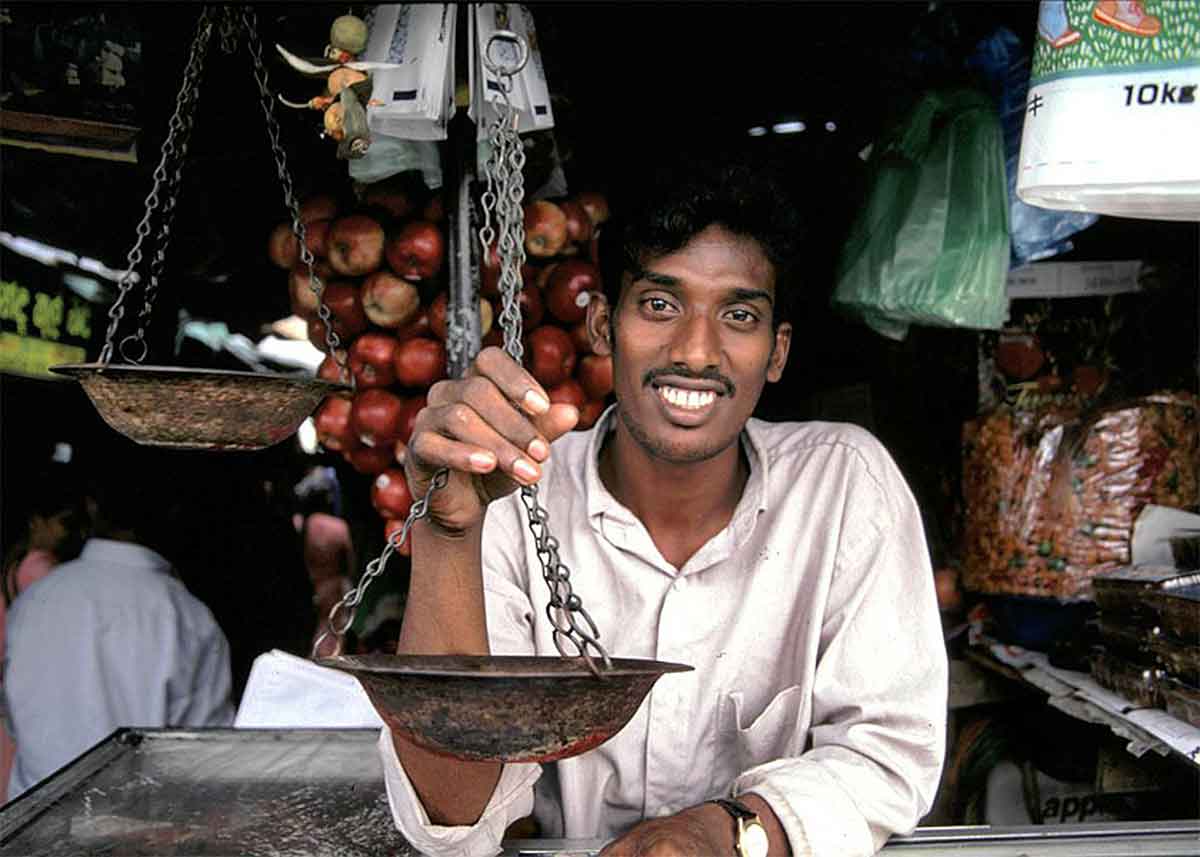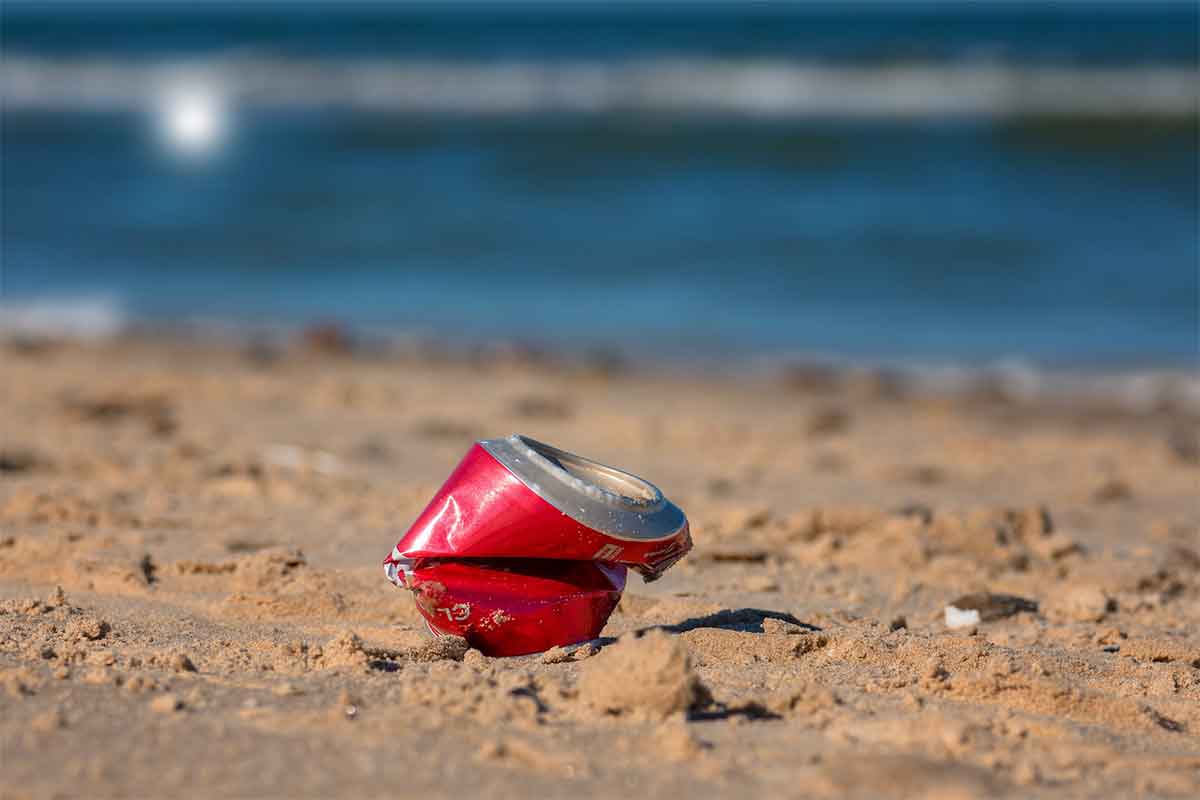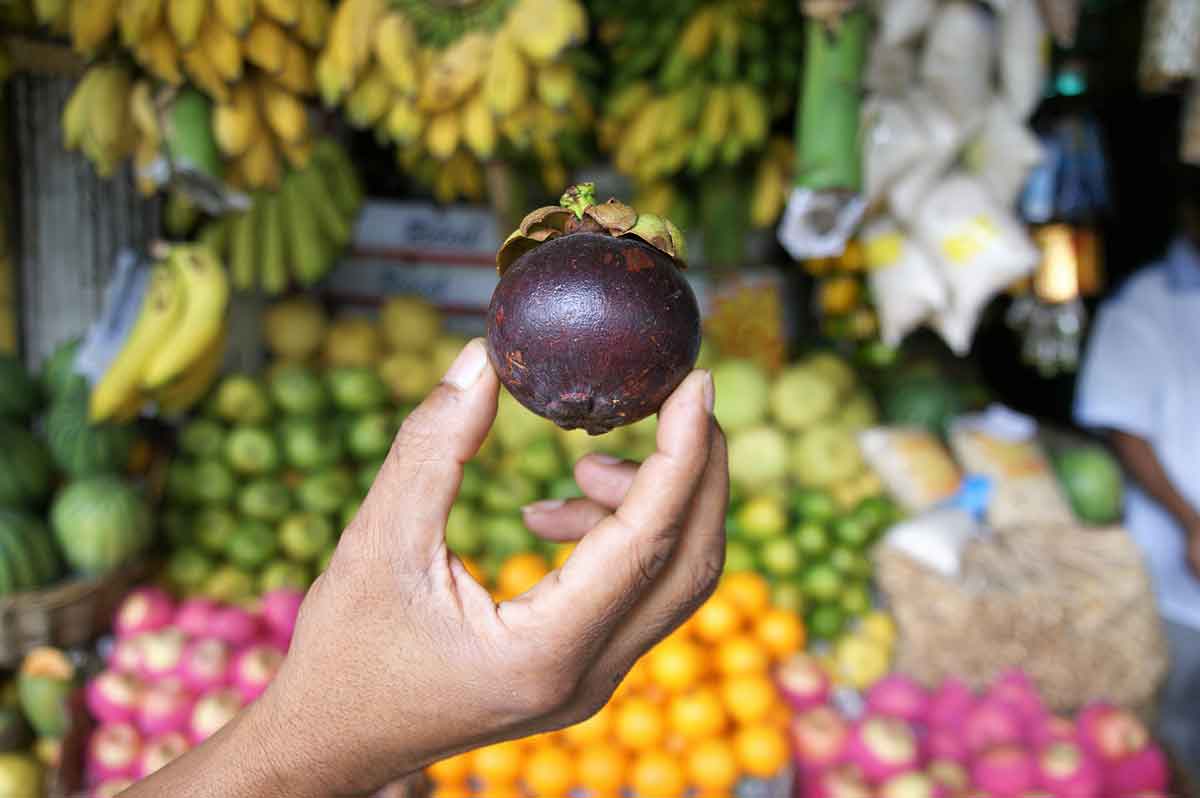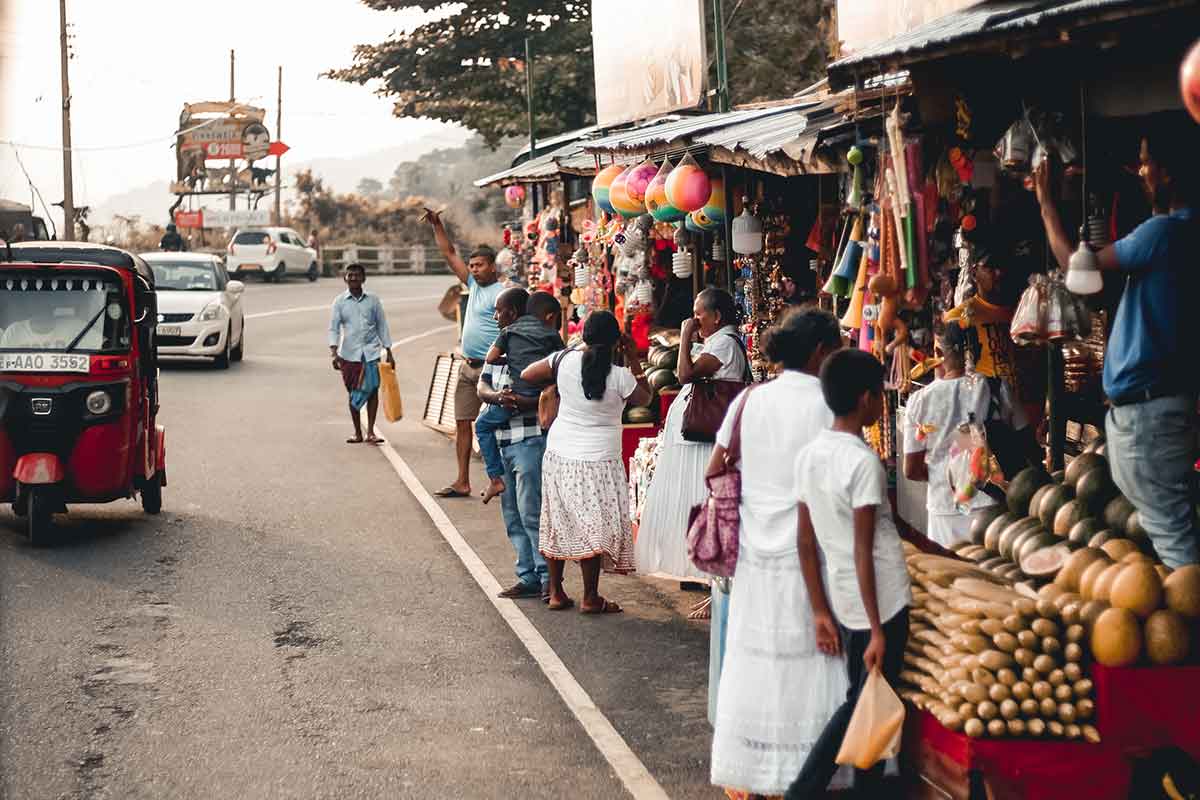Viaggiare responsabile in Sri Lanka
Pubblicato il 17 dicembre 2024
Viaggiare in modo responsabile in Sri Lanka, o in altri paesi, dovrebbe essere la priorità per chiunque ami viaggiare e scoprire le culture del mondo! Il turismo responsabile è alla portata di tutti, soprattutto durante un tour in Sri Lanka. Che tu preferisca un soggiorno balneare sulle rive dell’Oceano Indiano, un tour alla scoperta tra risaie e templi, o ancora un viaggio immersivo presso la popolazione locale, il turismo sostenibile è possibile, qualunque sia il tuo modo di viaggiare. Ti spieghiamo perché e come iniziare!
Cos’è esattamente il viaggio responsabile?
È semplicemente un turismo di buon senso. Un turismo che rispetta l’ambiente, le diverse culture e le persone. Quando viaggi, sei un ospite. È l’occasione per incontrare, scoprire, condividere e mostrare umanità.
Il viaggio responsabile può e deve contribuire al miglioramento del benessere di tutti, sia in Sri Lanka che per ogni viaggiatore.
Questo passa attraverso tante piccole azioni che puoi fare e atteggiamenti da adottare durante il tuo viaggio. Perché siamo tutti attori, come il colibrì di Pierre Rabhi.
Al piccolo colibrì che si dava da fare modestamente per spegnere un immenso incendio di foresta trasportando qualche goccia d’acqua nel becco, un armadillo gli disse: E il colibrì rispose:

(c) John Gibson – pixabay
Viaggiare Responsabilmente in Sri Lanka è una questione di comportamento e di gesti rispettosi dell’ambiente e delle persone.
Lo Sri Lanka e l’ambiente
Lo Sri Lanka è un paese straordinario, pieno di natura, cultura e persone incredibili.
Conosciuto per i suoi templi e monumenti iscritti al patrimonio mondiale dell’Unesco, come le antiche città di Polonnaruwa, Sigiriya, il Tempio d’Oro di Dambulla, o la città sacra di Kandy, solo per citarne alcuni.
Lo Sri Lanka possiede anche siti naturali e parchi nazionali patrimonio mondiale: gli Altipiani centrali dello Sri Lanka e la riserva della foresta di Sinharaja.
La bellezza dei paesaggi, le piantagioni di tè e gli animali, la ricchezza della cultura e l’accoglienza delle persone fanno dello Sri Lanka una destinazione verde e autentica per eccellenza.
Vedi questa pubblicazione su Instagram
Una pubblicazione condivisa da Travelsrilanka??? (@travelsrilankaa) il 2 Mag 2017 alle 12:52 PDT
Sono in corso azioni in Sri Lanka a favore della protezione dell’ambiente, come sottolinea lo studio di Green Globe:
Lo Sri Lanka è la prima nazione al mondo a proteggere tutte le sue mangrovie. L’obiettivo è proteggere questo vero ecosistema di oltre 10.000 ettari.
Nel 2015, il paese è stato uno dei primi a vietare definitivamente il glifosato.
La recente misura che mira a vietare le motoseghe e a chiudere le segherie entro 5 anni per aumentare la copertura forestale mostra anche l’importanza della natura in Sri Lanka.
7 consigli per viaggiare responsabilmente in Sri Lanka
Ecco alcuni piccoli consigli, dettati dal buon senso, per dare più significato al tuo viaggio in Sri Lanka:
#1 Viaggiare con un’agenzia locale
Il tuo viaggio responsabile in Sri Lanka inizia con la scelta di un’agenzia locale rispettosa degli equilibri ambientali e umani.
L’agenzia di viaggi locale Aloka Sanna ti propone di prenderti il tempo per vivere esperienze a contatto con la natura, fare escursioni, giri in bicicletta. Immergerti nella cultura locale, seguire corsi di cucina, di massaggi, di yoga, di meditazione…
Un’agenzia locale che eviterà le attrazioni irrispettose verso gli animali. Passeggiare a dorso di elefante o fare un’uscita in barca per vedere balene e delfini spesso nasconde maltrattamenti animali.
È molto meglio osservare gli animali nel loro habitat naturale, in un parco nazionale come quello di Minnériya o in un rifugio basato sul benessere animale.
Vedi questa pubblicazione su Instagram
Una pubblicazione condivisa da Jochen Hertweck (@travel_photography_jhertweck) il 26 Mag 2019 alle 3:31 PDT
#2 Compensa le tue emissioni di CO2
È vero che, per andare in Sri Lanka, l’aereo è più veloce e pratico. Questo genera inevitabilmente emissioni di CO2. Tuttavia, puoi compensare il tuo impatto di carbonio andando sul sito goodplanet.org. È già un primo gesto.
Puoi anche scegliere una compagnia aerea che sviluppa una vera politica di limitazione della plastica monouso.
#3 Gestione dei tuoi rifiuti
Molti paesi occidentali preferiscono inviare i propri rifiuti di plastica nei paesi asiatici. La questione dei rifiuti è quindi fondamentale in Asia e in Sri Lanka.
In prevenzione, prima di partire, puoi lasciare i tuoi imballaggi usa e getta inutili invece di portarli in Sri Lanka.
L’inquinamento da plastica è una delle più grandi sfide ecologiche. Un camion della spazzatura viene riversato ogni secondo in mare. Il mare non è una discarica.
Lo Sri Lanka è un’isola e il mare è essenziale. Bisogna preservarlo. Un semplice sacchetto di plastica può essere fatale per le tartarughe marine che soffocano ingoiandolo.
Il “Plogging” ispirato dalla Svezia consiste nel raccogliere i rifiuti mentre si corre. Proponiamo il “Plogbeach”. Quando passeggi sulla spiaggia, nulla ti impedisce, per qualche minuto, di raccogliere qualche rifiuto. Questo permette di pulire un po’ l’ambiente e, inoltre, la tua azione avrà valore di sensibilizzazione presso la popolazione locale. Le belle spiagge meritano che si dedichi loro un po’ del proprio tempo! Durante un viaggio in famiglia, vedrai, i tuoi figli lo troveranno molto divertente!
In spiaggia, preferisci una crema solare piuttosto che un olio, perché quest’ultimo forma una pellicola sulla superficie dell’acqua, impedendo la fotosintesi delle piante sottomarine.
Preferisci, se possibile, prodotti per il corpo biodegradabili.

Lo Sri Lanka oggi non dispone di un sistema di raccolta dei rifiuti. Hai un vero ruolo attivo e di sensibilizzazione da svolgere per evitare l’eccesso di rifiuti.
Ovviamente, è importante gettare i tuoi rifiuti in un cestino durante le visite o le attività. Quando non sono disponibili, portali con te per buttarli in città o nei cestini delle tue sistemazioni.
Puoi anche riportare nel tuo bagaglio di ritorno i rifiuti nocivi o non riciclabili come le pile, ad esempio.
I fumatori possono anche prevedere un posacenere tascabile per evitare che un mozzicone impieghi 2 anni a decomporsi.
Favorisci contenitori riutilizzabili come borracce in acciaio inox da riempire, in sostituzione delle bottiglie d’acqua in plastica.
#4 Alimentazione e acquisti
Approfitta del tuo viaggio in Sri Lanka per ridurre il consumo di carne. È un modo efficace per ridurre il tuo impatto sull’ambiente.
Non privarti di mangiare la frutta e la verdura fresca del paese. Noci di cocco, banane, riso, tè, spezie, qui tutto è un’esplosione di sapori!

Le mance devono essere in rapporto con il costo della vita locale per non destabilizzare l’economia locale.
#5 Gestione dell’acqua in viaggio
Ovunque nel mondo, l’acqua è una risorsa essenziale. In Sri Lanka in particolare, a volte è considerata un lusso. Preferisci docce rapide piuttosto che bagni, che consumano in media 5 volte più acqua.
Per risparmiare acqua ed elettricità, puoi chiedere che gli asciugamani e le lenzuola non vengano cambiati ogni giorno negli hotel dove soggiorni più giorni.
Quando è possibile, fai a meno dell’aria condizionata. Spegni gli apparecchi elettrici e le luci. Anche l’elettricità è una risorsa da preservare in Sri Lanka. Tra l’altro, possono verificarsi interruzioni di corrente. Ed è proprio in questi momenti che ci si rende conto dell’importanza di questa energia.
#6 Le attività in Sri Lanka
Approfitta delle fantastiche attività che il paese offre: escursioni, surf, kite-surf… Praticarle significa rispettare l’ambiente.
Prenditi il tuo tempo. Vivi al ritmo della popolazione locale.
Puoi sostenere iniziative locali e partecipare ad azioni locali in orfanotrofi, scuole o rifugi per animali.
Il tuo contributo è benvenuto ed è l’occasione per momenti di condivisione e scoperte particolarmente arricchenti e pieni di umanità. La tua presenza ha già un impatto vitale.
Vedi questa pubblicazione su Instagram
Una pubblicazione condivisa da ✮ ????????? ✈ ?????? ☽ (@chasingcoconuts_) il 27 Giu 2019 alle 2:38 PDT
#7 L’umano e lo scambio
Fai del tuo viaggio una splendida occasione di scambi e momenti condivisi.
Vai nei mercati locali, nelle piccole bancarelle, nell’artigianato locale piuttosto che nei centri commerciali o nei duty free degli aeroporti…
È il modo migliore per trascorrere del tempo a contatto con le persone per scoprire la loro quotidianità e la loro cultura.

Inoltre, fai beneficiare direttamente la popolazione del denaro del turismo.
Prima di scattare una foto, chiedi gentilmente il permesso.
Ovviamente è importante rispettare i luoghi di culto, e non entrarvi se l’accesso è vietato ai turisti. Anche se i singalesi non te ne faranno una colpa, apprezzeranno il tuo abbigliamento adeguato al luogo e alla circostanza.
Viaggiare responsabilmente significa anche preservare l’ecologia della mente. Può fare molto bene disconnettersi durante un prossimo viaggio per aprirsi alle cose e alle persone… Il tuo comportamento, il tuo atteggiamento, i tuoi gesti da viaggiatore responsabile rimarranno come una luce in Sri Lanka. Vivrai esperienze autentiche di apertura e condivisione ancora più forti. Il tuo piacere ne sarà moltiplicato.
Non sarà un’impronta di carbonio ma un’impronta umana quella che lascerai e che porterai con te.
Un sito di
Personalizza i tuoi viaggi con Quotatrip e ricevi offerte su misura direttamente nella tua casella di posta.
Scoprire un paese